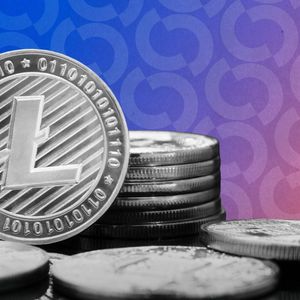BitcoinWorld Pioneering Won-Based Stablecoins: Lotte Card’s Ambitious Leap with 36 Trademarks In a significant development that could reshape South Korea’s digital finance landscape, Lotte Card, a prominent credit card issuer, has made an ambitious stride into the realm of won-based stablecoins . This strategic move, marked by the filing of 36 trademark applications, signals a growing interest from traditional financial institutions in embracing blockchain technology and digital currencies. But what exactly are won-based stablecoins , and why is Lotte Card’s initiative so pivotal? What are Won-Based Stablecoins and Why Do They Matter? At its core, a stablecoin is a type of cryptocurrency designed to maintain a stable value, typically pegged to a fiat currency like the US dollar or, in this case, the South Korean Won. Unlike volatile cryptocurrencies such as Bitcoin or Ethereum, stablecoins aim to offer the benefits of blockchain technology—like speed, transparency, and lower transaction costs—without the price fluctuations. Won-based stablecoins would, therefore, be digital assets whose value is directly tied to the Korean Won, making them ideal for everyday transactions, remittances, and digital payments within the Korean economy. Stability: Their value is pegged to a fiat currency, minimizing volatility. Efficiency: Transactions can be faster and cheaper than traditional banking methods. Accessibility: Can facilitate easier access to digital finance for a broader population. Transparency: Transactions are recorded on a blockchain, offering a high degree of transparency. Lotte Card’s Strategic Play: Why 36 Trademark Applications for Won-Based Stablecoins ? Lotte Card’s decision to file a staggering 36 trademark applications related to won-based stablecoins is a clear indicator of its comprehensive strategy to secure its position in this nascent market. According to Yonhap Infomax, the company has registered a mix of brand-name trademarks in Hangul (the Korean alphabet) and ticker-style trademarks. Data from the Korean Intellectual Property Rights Information Service (KIPRIS) further reveals the specifics: 12 brand-name trademarks and 24 ticker trademarks. This extensive filing suggests Lotte Card is exploring multiple facets of the stablecoin ecosystem. They might be looking to launch various types of won-based stablecoins , each potentially serving different purposes or target audiences. For instance, some could be geared towards consumer payments, while others might focus on business-to-business transactions or cross-border remittances. Notable proposed names like ‘WONBIT,’ ‘KTOKEN,’ and ‘LOCAMONEY’ hint at a diversified approach, combining references to the Korean Won, general tokenization, and Lotte Card’s own brand identity. This move is not merely about launching a single digital currency; it’s about building an entire brand portfolio around future digital financial services. By securing these trademarks early, Lotte Card is laying the groundwork for potential future products and services, ensuring they have legal protection for their innovations in the digital asset space. The Broader Landscape: How Do Won-Based Stablecoins Fit into South Korea’s Digital Future? South Korea has long been a frontrunner in technological adoption and digital innovation. The country’s financial sector is no stranger to digital transformation, with high rates of mobile banking and digital payments. The emergence of won-based stablecoins , especially from a major player like Lotte Card, could significantly accelerate this trend. It also comes at a time when central banks globally are exploring Central Bank Digital Currencies (CBDCs), with the Bank of Korea having conducted its own CBDC pilot programs. While a CBDC would be issued and controlled by the central bank, private stablecoins like those Lotte Card is exploring could complement this ecosystem by offering more specialized use cases or by facilitating innovation in areas where a CBDC might not be as flexible. This move by Lotte Card could also spur other traditional financial institutions in South Korea to explore similar ventures, fostering a competitive environment that drives innovation and adoption of digital assets. Key Players and Potential Synergies: Banks: Other commercial banks might launch their own stablecoins or integrate Lotte Card’s. Tech Companies: Collaboration with fintech firms for payment infrastructure. Regulators: The Financial Services Commission (FSC) will play a crucial role in shaping the regulatory framework for these assets. Potential Benefits for Consumers and Businesses with Won-Based Stablecoins The widespread adoption of won-based stablecoins could unlock numerous benefits for both individual consumers and businesses in South Korea. For consumers, it could mean faster, cheaper, and more convenient ways to pay for goods and services, send money to friends and family, or even manage their savings. Imagine seamless, instant transactions for daily purchases, eliminating the need for traditional banking hours or delays. For businesses, stablecoins could significantly reduce transaction fees, streamline payment processing, and open up new avenues for digital commerce. Small and medium-sized enterprises (SMEs), in particular, could benefit from lower operational costs and enhanced financial inclusion. Furthermore, the programmability of stablecoins could enable innovative financial products, such as automated payments, escrow services, or even micro-lending platforms built on blockchain. How Could They Be Used? The potential applications of won-based stablecoins are vast: Use Case Benefit Daily Payments Instant, low-cost transactions for retail and online purchases. Remittances Faster and cheaper international money transfers. E-commerce Simplified payment gateways for online businesses. Cross-Border Trade Efficient settlement of international trade invoices. Challenges and Considerations for the Future of Won-Based Stablecoins While the prospects for won-based stablecoins are exciting, several challenges and considerations must be addressed for their successful integration into the financial system. Regulatory clarity is paramount. South Korea’s financial authorities will need to establish clear guidelines for the issuance, circulation, and oversight of private stablecoins to ensure consumer protection, prevent money laundering, and maintain financial stability. Another key challenge is adoption. While Lotte Card has a large customer base, convincing the broader public to switch from traditional payment methods to stablecoins will require significant education and trust-building efforts. Interoperability with existing financial systems and other digital assets will also be crucial. Finally, technological infrastructure and security measures must be robust to prevent hacks, fraud, and other cyber threats. Key Hurdles to Overcome: Regulatory Framework: Need for clear, comprehensive regulations. Public Adoption: Building trust and educating users. Interoperability: Seamless integration with existing financial systems. Security: Protecting against cyber threats and ensuring data privacy. What Does This Mean for the Future of Finance? Lotte Card’s aggressive move into won-based stablecoins is more than just a corporate strategy; it’s a powerful signal of the evolving financial landscape. It highlights a growing recognition among traditional financial players that digital assets are not just a niche phenomenon but a fundamental shift that could redefine how money moves and how financial services are delivered. This development could pave the way for a more integrated financial ecosystem where traditional finance and blockchain technology converge. For individuals and businesses, this could mean access to more innovative, efficient, and cost-effective financial tools. It underscores the importance of staying informed about these rapid changes and understanding how they might impact daily life and economic activities. As more institutions like Lotte Card venture into this space, the digital transformation of finance will only accelerate, promising a future that is increasingly interconnected and digitally driven. Lotte Card’s filing of 36 trademark applications for won-based stablecoins marks a significant milestone in South Korea’s journey towards digital finance. This bold step by a major credit card issuer underscores the growing mainstream acceptance and strategic importance of stablecoins. While challenges related to regulation and adoption remain, the potential benefits—from enhanced payment efficiency to greater financial inclusion—are substantial. As the digital asset landscape continues to evolve, Lotte Card’s proactive approach positions it as a key player in shaping the future of money in South Korea, offering a glimpse into a world where digital won seamlessly integrates into our daily financial lives. Frequently Asked Questions (FAQs) What is a won-based stablecoin ? A won-based stablecoin is a type of cryptocurrency whose value is pegged to the South Korean Won, aiming to maintain a stable price by backing it with an equivalent amount of Won reserves. This stability makes it suitable for transactions and payments. Why is Lotte Card filing so many trademarks for won-based stablecoins ? Lotte Card’s filing of 36 trademarks, including brand-name and ticker-style marks, indicates a comprehensive strategy to secure its intellectual property in the nascent stablecoin market. It suggests they are exploring various types of won-based stablecoins for different use cases and building a strong brand portfolio for future digital financial services. How could won-based stablecoins benefit consumers in South Korea? Consumers could benefit from faster, cheaper, and more convenient digital payments, remittances, and online transactions. Won-based stablecoins can also offer greater financial accessibility and potentially lower fees compared to traditional banking methods. What are the main challenges for the adoption of won-based stablecoins ? Key challenges include establishing clear regulatory frameworks, gaining public trust and widespread adoption, ensuring interoperability with existing financial systems, and implementing robust security measures to protect against cyber threats and fraud. How do won-based stablecoins differ from a Central Bank Digital Currency (CBDC)? While both aim for digital currency, a CBDC is issued and controlled by a country’s central bank (like the Bank of Korea), whereas won-based stablecoins are issued by private entities like Lotte Card. Private stablecoins can offer more specialized use cases and innovation within the broader digital currency ecosystem. Did you find this article insightful? Share it with your network on social media to spread the word about Lotte Card’s groundbreaking move into won-based stablecoins and the future of digital finance! To learn more about the latest explore our article on key developments shaping the crypto market ‘s institutional adoption . This post Pioneering Won-Based Stablecoins: Lotte Card’s Ambitious Leap with 36 Trademarks first appeared on BitcoinWorld and is written by Editorial Team















